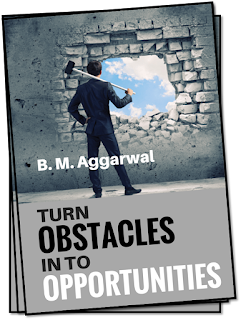Want Excellence?
Learn to take Ownership.
Are you trying to lead a life where you are
committed to displaying excellence in everything that you do? This is a
wonderful way to lead your life. One way to reach this point is by taking
ownership and responsibility for all of your actions.
Once you 'own' your choices and accept the
consequences you will be viewed as a person who can be respected. Other people
will see you as someone who can be counted on, and this is a huge trait to own.
The easiest way to display ownership is by not
making excuses. If you were late for an appointment don't come up with a
ridiculous excuse. Tell the other person why you were late, apologize for not
calling to let them know.
It really is so easy to blame outside influences
for your mistakes or oversights. While no-one can control one hundred percent
of what happens, you can control how you respond to certain situations. This
reaction can completely change your life.
Examples of things you can take ownership for
include your relationships, your education, your fitness and your social life.
As you start to take ownership you will find that you feel more confident and
have a purpose in life.
Along with ownership you need to learn how to be flexible. Are you currently willing to do things differently? This means not being stubborn when something isn't working. Take advice and attempt to change what you are doing. If you do you will begin to excel at more tasks and this helps increase your confidence and self-esteem.
Along with ownership you need to learn how to be flexible. Are you currently willing to do things differently? This means not being stubborn when something isn't working. Take advice and attempt to change what you are doing. If you do you will begin to excel at more tasks and this helps increase your confidence and self-esteem.
Becoming a flexible person means that you are
happy to respond to a situation in a different way. When you are flexible you are
not rigid and set in your ways.
This brings us to another important factor in the quest to committing to excellence with everything you do. This is the step of adding balance to your life.
When you live a
balanced life you are focusing on those things that hold meaning to you. At the
same time, though, you are still mindful of those around you. You make choices
that are related to the way you feel and what you are thinking. This brings us to another important factor in the quest to committing to excellence with everything you do. This is the step of adding balance to your life.
Balancing your life entails knowing when you have to not go out with friends so you can finish up an important project. You recognize the importance of staying healthy and fit and act accordingly.
When you combine taking ownership, being flexible, and balance, into your life you will be well on your way to leading a life where you are committed to excellence.

